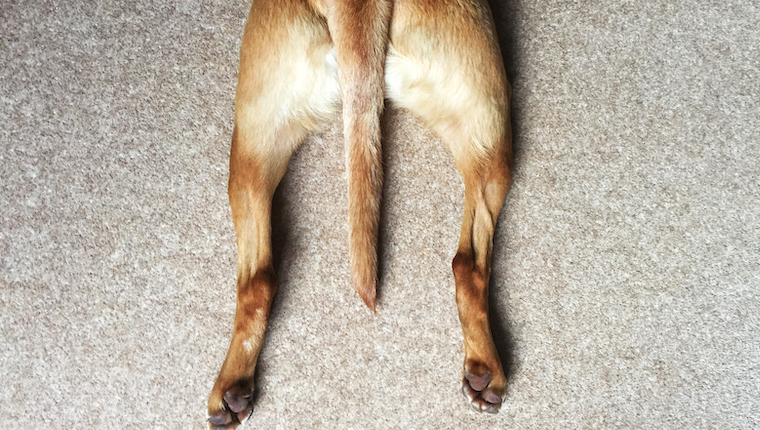There are multiple causes behind troublesome canine joint issues, which affect a dog’s bones and ligaments. Joint issues are painful for pups and often expensive to treat, but there are courses of action that humans can take to avoid costly canine orthopedic surgery. Not all joint issues in dogs can be prevented, but understanding how to keep your dog fit and active may postpone or alleviate the need for more serious interventions.
Typically, a dog exhibiting joint pain will fall under one of these four categories:
Injury
Figgy, a young, healthy mutt, charges at a squirrel full-speed across his backyard. A moment later, he is limping.
A leg injury that lasts longer than a day or two should be evaluated by a veterinarian. The vet may prescribe a dog-safe anti-inflammatory (do not give your dog aspirin!) and recommend rest. If R & R doesn’t help, you may be referred to a canine orthopedic surgeon.
Orthopedic surgery can run several thousand dollars, but it may be your dog’s only option for a full recovery. Animal hospitals typically offer credit or billing plans, but pet insurance can offer real peace of mind (and save your bank account) when faced with a surgery decision. Pet insurance must be purchased prior to an injury, but it will pay for itself if your pet needs a knee repaired.
Age
Bailey, an aging Golden Retriever, has trouble with jumping up to her favorite spot on the sofa, and takes the stairs with difficulty.
Older dogs are prone to arthritis from years of wear and tear on bones, just like humans. The age a dog is neutered or spayed may also affect their joints. According to veterinarian Dr. Jeff Grognet, early sterilization (before six months) delays growth-plate closure, leading to sterilized dogs that are taller and lankier. This changes the angle of the knee and may possibly predispose a dog to future ligament damage. An older, arthritic dog may benefit from anti-inflammatory and pain medications, along with gentle exercise prescribed by your vet.
Genetics
Sofie, a German Shepard, enjoys regular exercise and obedience work but suddenly goes lame in her hind legs.
Some large or giant breeds of dogs are prone to hip dysplasia. This genetic condition is aggravated by multiple factors. The American Kennel Association recommends talking to a vet for treatment options (which can include medication, physical therapy or surgery) and lifestyle changes. Before purchasing a purebred dog, ask to see the dog’s Orthopedic Foundation for Animals (OFA) report, in addition to the health records.
Weight
Oliver, a portly Basset Hound, lives for treats and is 20 lbs. overweight. He moves slowly and can only toddle short distances.
Obesity aggravates canine joint issues. It is the one condition that humans can 100 percent prevent their pups from suffering. It is tempting to reward good behavior by giving dogs delicious treats, but an overweight dog is an unhealthy dog. If your pup is putting on the pounds, discuss appropriate feeding with your vet — and make dog treats healthier using fruit and vegetables!









